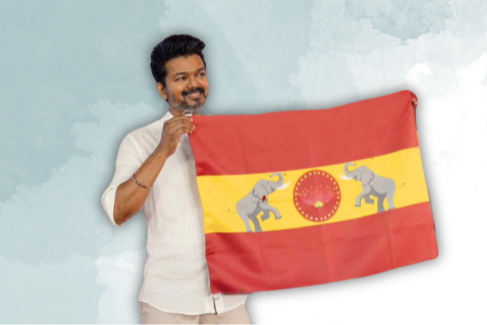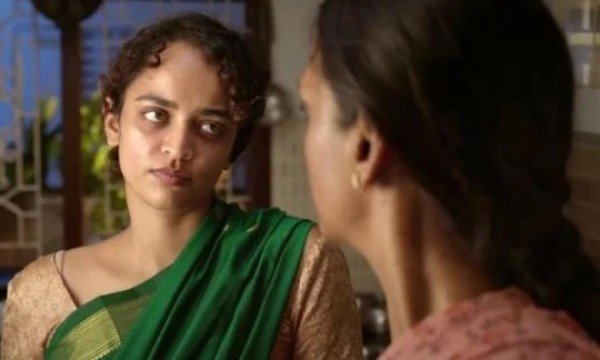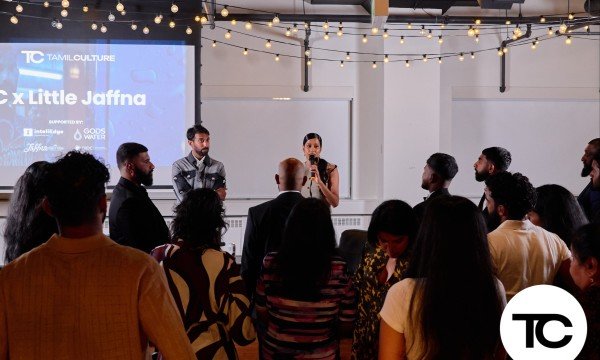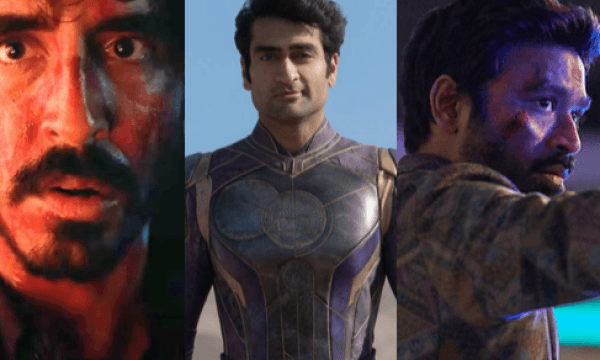
Tamil movie legend Vijay recently entered politics. In 2024, he founded the regional Tamilaga Vettri Kazhagam party. His political positions appear left-leaning, with anti-corruption and anti-nationalism as core aspects of his ideology.
Socioeconomic issues and tackling inequality are not new ideas, but they fit the quintessential “man of the people” trope that almost every politician inevitably adopts. A legendary actor who has built his movie brand on a similar “sticking up for the little guy” and anti-establishment persona, Vijay’s transition into politics raises some interesting questions: Why do so many actors and actresses move into politics? Is the on-screen heroism portrayed by Kollywood leading men applicable to real life? Can they really relate to the masses?
Find out how myTamilDate helps single Tamils find serious relationships on their own terms!
To answer these questions, I would argue that the authenticity of the actor-to-politician transition can vary. To answer the first, politics is a natural next step for many celebrities. In Tamil cinema, movie stars like MG Ramachandran, Jayalalithaa, and Vijayakanth made successful and long-lasting political transitions, enjoying widespread popular support. This is just as true outside of India, with celebrity transitions into politics being commonplace in the U.S. and elsewhere. Politics has long been used by celebrities as a way to use their well-established power and fame to create positive change; or in more negative instances, as a means to enrich themselves and fuel corruption and nepotism.
Does on-screen heroism follow the celebrity-turned-politician into real-life? Well, that clearly depends on the celebrity. It is safe to say that playing a “man of the people” on screen has little to do with an individual’s ability to act in people’s best interest or speak for “the people”. However, several celebrities-turned-politicians have used their newfound positions of political power to combat inequality and discrimination: MG Ramachandran’s rice subsidy program for low-income families, and Kamal Haasan’s “Whistle” Initiative aimed to address corruption and poverty. Vijay’s platform, while new, calls for similar initiatives. Jayalalithaa, however, despite championing wellness programs for the poor, was jailed on corruption charges, while Vishal (another actor-turned-politician) has also been accused of financial fraud. Of course, these allegations of corruption and wrongdoing are no different than the allegations everyday politicians from all backgrounds often face; but it does highlight the fact that an actor’s on-screen persona and likability is not what determines if they’ll make good or honest politicians.
But the widespread appeal that celebrity politicians often enjoy raises the question of relatability. Can celebrities-turned-politicians really relate to the struggles of the everyday person? On one hand, you can argue that an actor’s immense wealth and power puts them out of touch with everyday people; this may ring even truer for those who come from acting families or powerful dynasties. Vijay’s parents, for example, are well-established figures in the Indian movie industry. One might assume that a lifelong abundance of wealth and privilege lessens his appeal to people with more modest upbringings, but this has clearly not been the case. Politics around the world, especially in recent years, have proven that political success does not often have much to do with a politician’s ability to govern or understand complex policies; political success has much more to do with one’s ability to build a brand and effectively captivate audiences. Vijay has built his image as a man of the people, with his roles exclusively heroic and centred on fighting corruption, poverty, inequality, injustice and the establishment. There is no doubt that this image, along with his well-honed speaking and storytelling skills, have followed him into politics.
So, can movie heroes be real-life heroes? They definitely can be. But whether or not they will adopt their heroic on-screen values to their new roles as public servants comes down to the intentions and aspirations of the actor or actress in question. The on-screen hero persona does little to increase an actor’s ability to deliver on an uplifting platform, but it does allow them to motivate and move people, and build emotional connections. For figures like Vijay, whether or not his popularity and socially conscious platform will result in improving livelihoods for the common person will come down to his personal motivations, not his on-screen appeal.


























